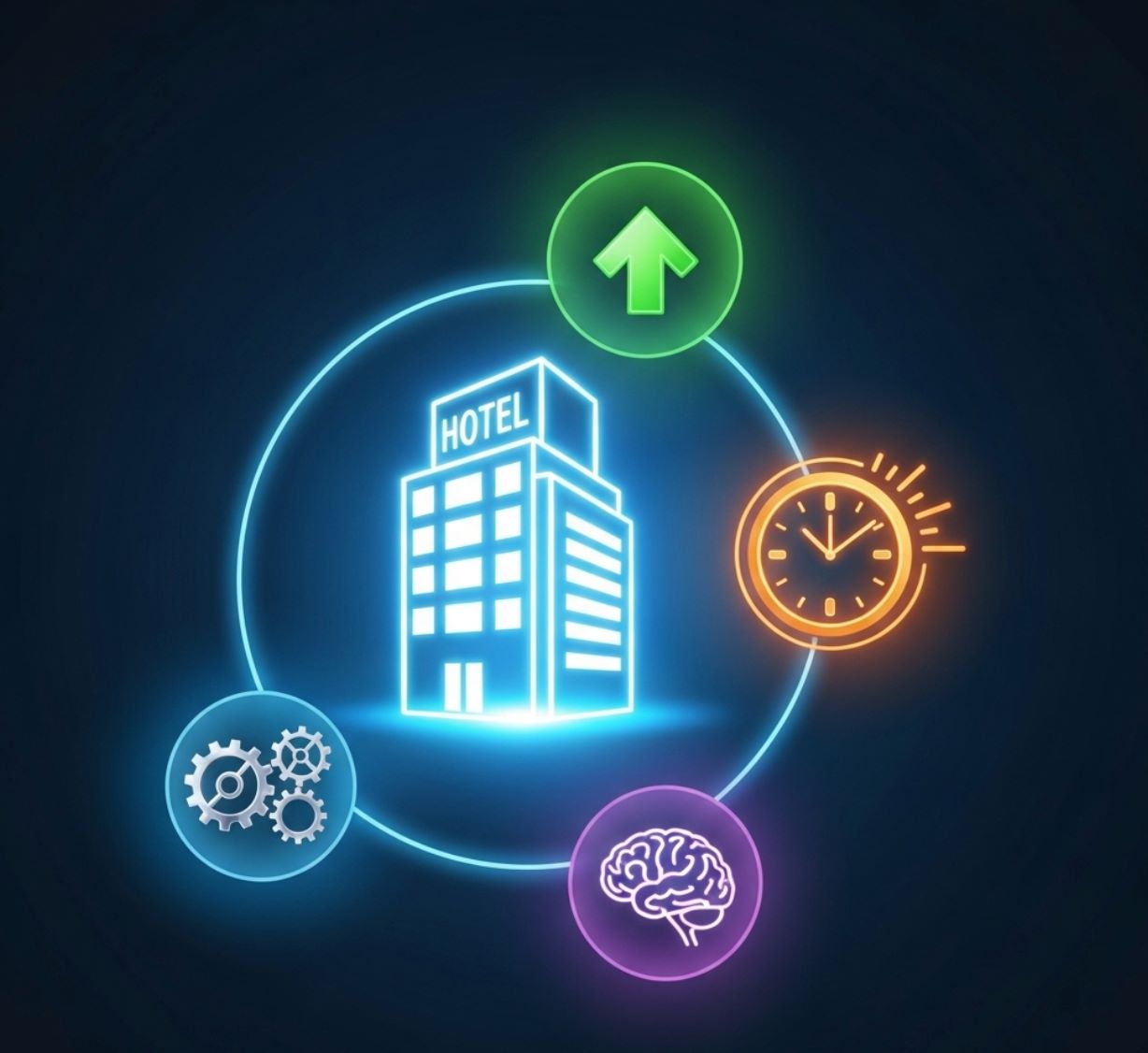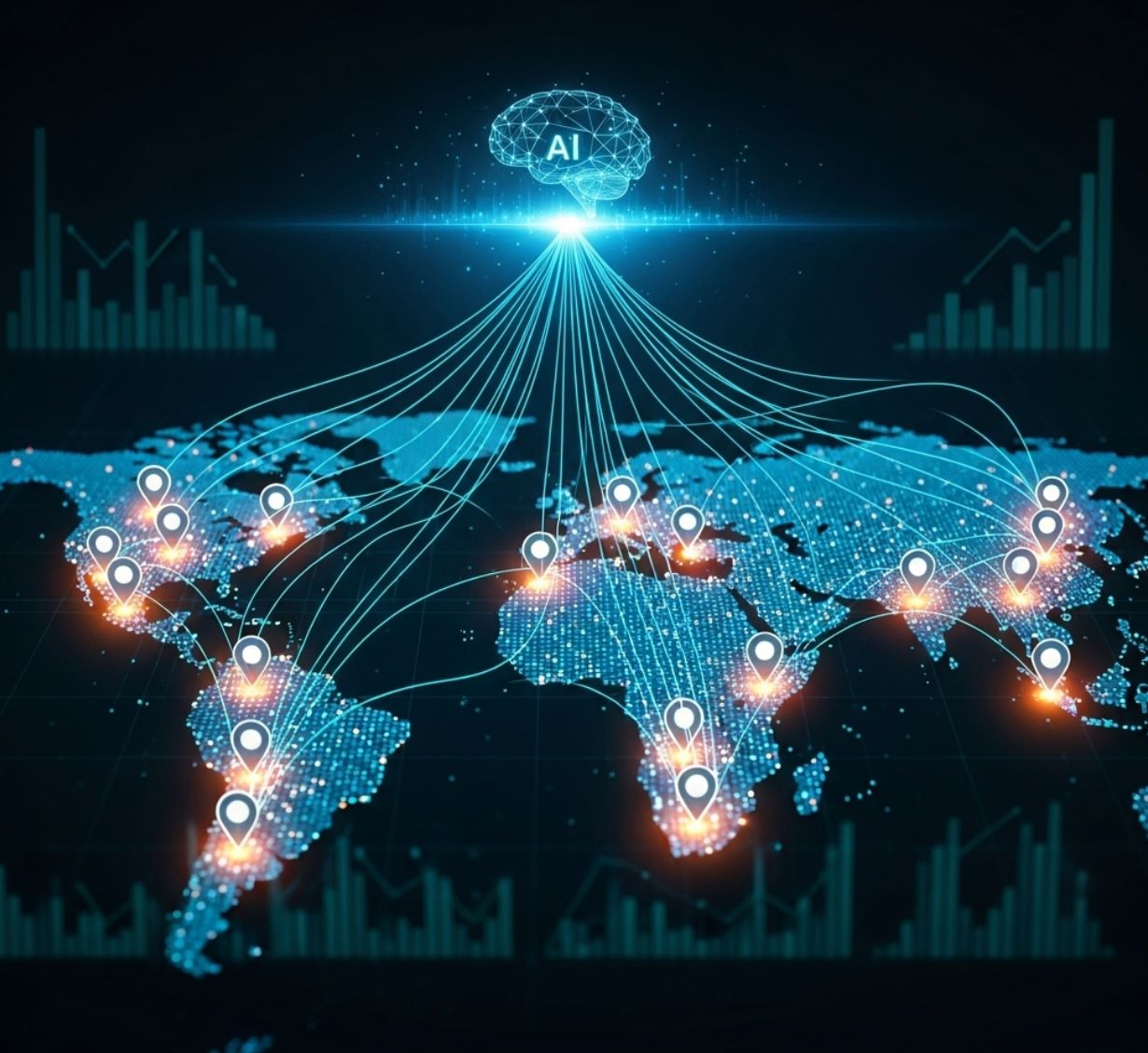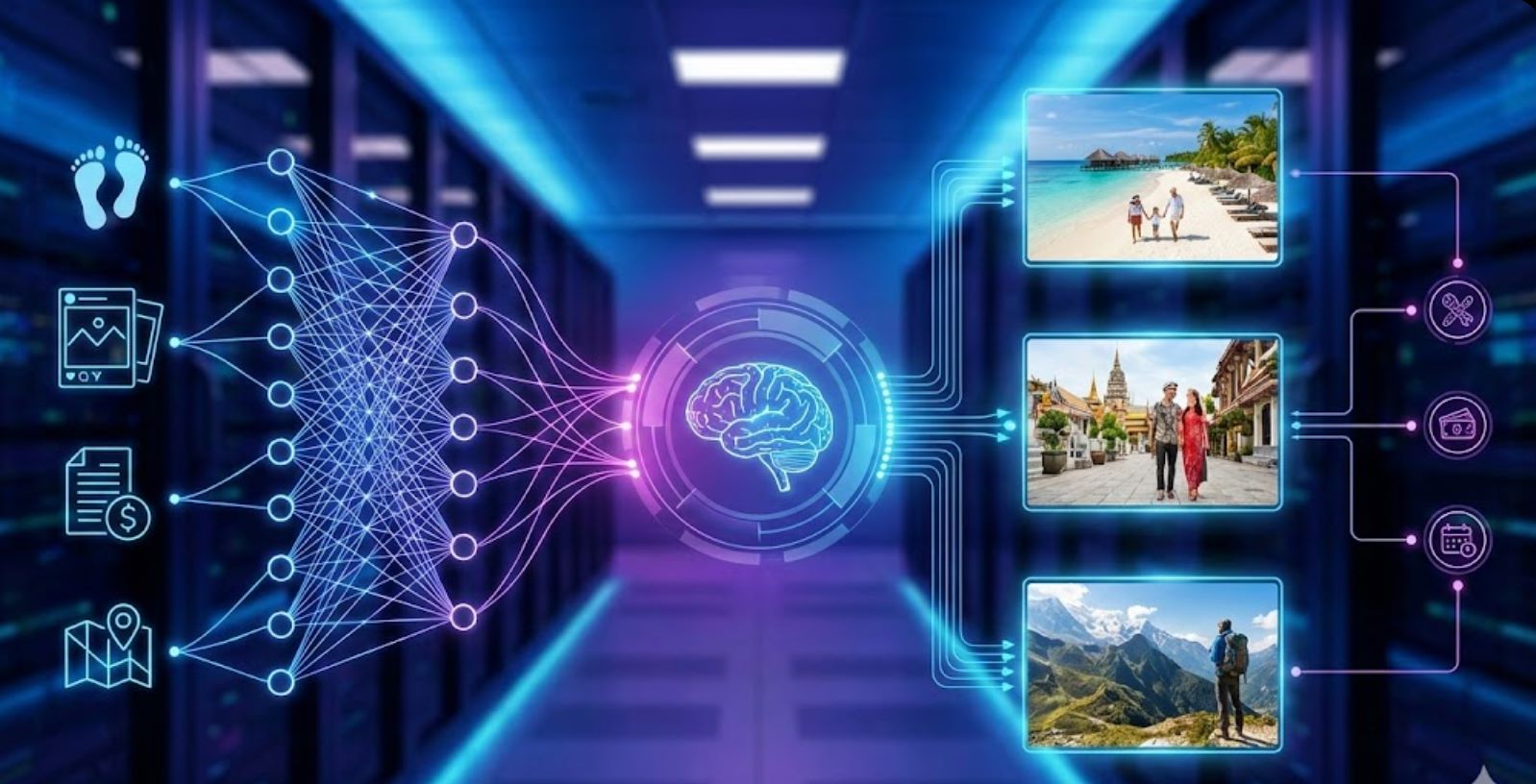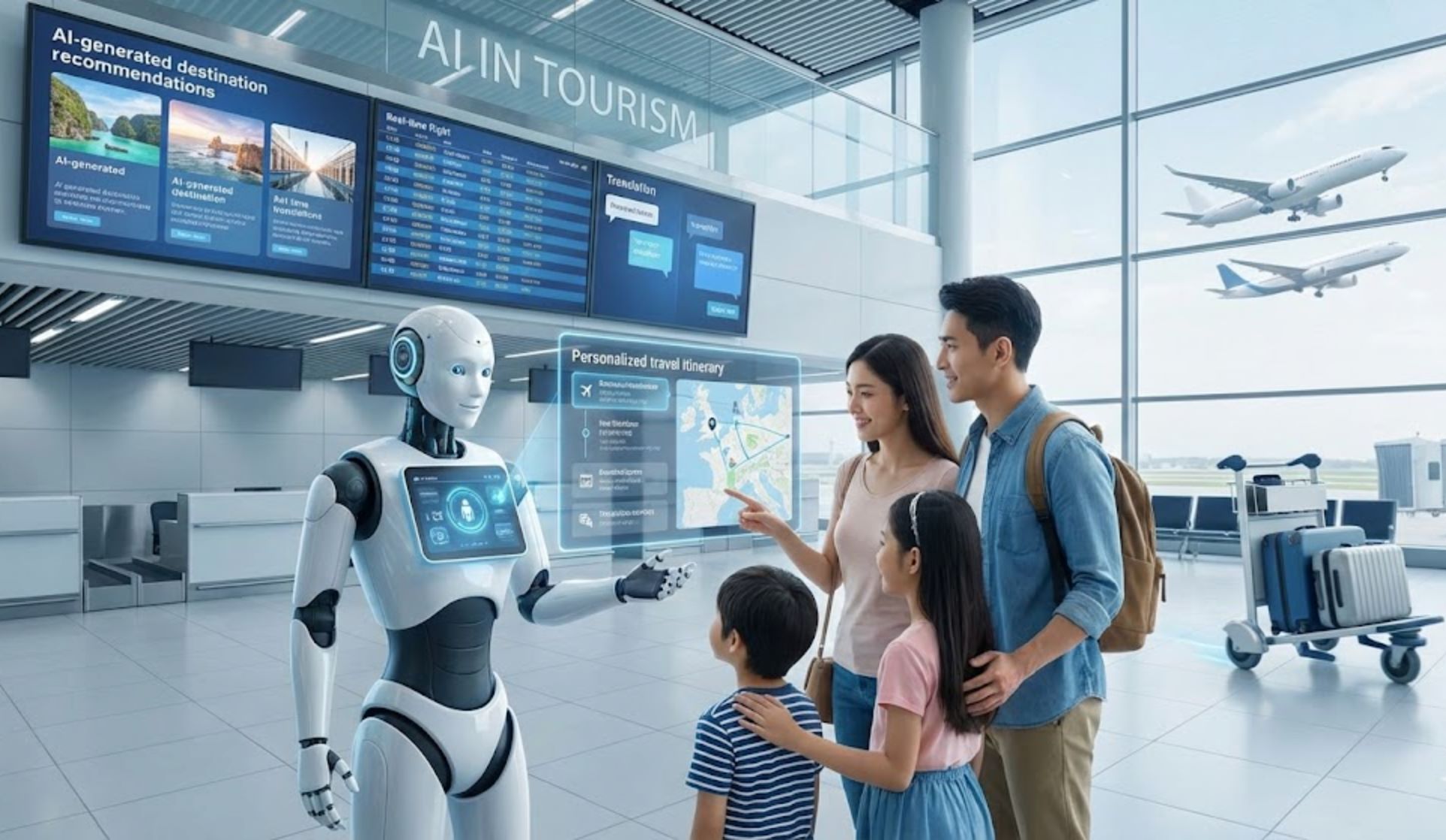AI Optimizes Hotel Room Prices in Real Time
In the highly competitive hotel industry, room rates fluctuate constantly based on seasonality, events, demand, and guest booking behavior. Setting prices incorrectly can lead to lost revenue or missed opportunities. Today, artificial intelligence (AI) offers a breakthrough solution: real-time hotel room price optimization. By analyzing big data from search trends, booking patterns, local event schedules, and competitor pricing, AI can automatically adjust rates with precision. This not only helps hotels maximize revenue but also enhances the guest experience by ensuring competitive and fair pricing at any moment.
In today's volatile travel market, hotels must set room rates constantly to match changing demand. Modern AI-powered revenue-management systems can monitor massive real-time data – competitor prices, booking pace, local events, weather, social trends and more – and adjust rates instantly to maximize occupancy and revenue.
AI addresses this by replacing slow, rule-based pricing with machine learning that analyzes vast datasets in real time. These systems ingest live inputs (booking trends, competitor rates, search activity, etc.) and then suggest or implement price changes aimed at raising revenue per available room (RevPAR) and average daily rate (ADR).
- Fixed rules by season or day of week
- Fails to account for real-time shifts
- Slow response to market changes
- Manual rate updates consuming hours
- Advanced algorithms detect subtle patterns
- Real-time response to market signals
- Automated complex pricing strategies
- Decision intelligence in minutes
For example, machine learning models can spot growing interest from family travelers or spikes in flight searches and adjust segment-specific prices accordingly. In short, AI turns dynamic pricing into "decision intelligence" – automating complex pricing strategies in minutes rather than hours.

Key Benefits of AI-Driven Pricing
AI-enhanced pricing delivers multiple concrete advantages for hotels:
Real-Time Responsiveness
AI systems continuously track market factors and update rates on the fly.
- Instant reaction to competitor changes
- Immediate response to demand spikes
- Automated upsell opportunities
Improved Forecasting
Analyzing huge amounts of historical and external data for precise predictions.
- Early detection of demand surges
- Proactive pricing strategies
- Better revenue optimization
Efficiency and Automation
AI relieves managers of tedious tasks and routine operations.
- 80% reduction in manual rate updates
- Automated data crunching and monitoring
- More time for strategic initiatives
Revenue Gains
Data-driven pricing translates directly into higher profit per room.
- 7.2% increase in total revenue (Cornell study)
- Up to 25% RevPAR increase reported
- Higher ADR and occupancy rates
AI-powered systems process more data, faster and in real time, making pricing decisions faster, more accurate and more effective.
— Industry Revenue Management Expert

Real-World Success Stories
Hotels around the world report striking results from AI pricing. For example:
Business Hotel (Mumbai, India)
Challenge: Major financial conference creating demand surge
AI Action: Sensed surging demand and raised executive-room rates by 22% within an hour
Results:
- Full occupancy achieved
- 17% higher ADR vs. prior year
- Beat competitor response time
Heritage Hotel (Jaipur, India)
Challenge: 50-room boutique hotel with unpredictable festival traffic
AI Action: Automatically hiked rates up to 25% during peak festival days
Results:
- 20% year-over-year RevPAR increase
- Nearly 100% occupancy for event week
- Optimized festival pricing strategy
Beach Resort (Goa, India)
Challenge: Balancing last-minute demand, group bookings, and cancellations
AI Action: Immediately raised rates and minimum-stay requirements when music festival announced
Results:
- 18% uplift in ADR
- 30% reduction in revenue lost to cancellations
- Optimized New Year's pricing

Challenges and Considerations
Adopting AI pricing also brings challenges. Hotels must invest in data infrastructure and integrations (PMS, channel managers, etc.) to feed the algorithms.
Implementation Challenges
- High implementation costs - Significant upfront investment required
- Robust data infrastructure needs - Complex integrations with existing systems
- Staff training requirements - Revenue teams need to interpret AI recommendations
- Business rules setup - Configuring override logic and constraints
Trust and Transparency Issues
Many revenue managers are wary of "black box" AI models. Vendors address this through:
- Explainable AI features generating plain-language rationales
- Clear visibility into why prices are changing
- Transparent decision-making processes
- Human oversight and control mechanisms
Performance Considerations
While AI excels in many areas, human expertise remains valuable:
The most effective approach is a hybrid model: AI handles routine and data-intensive tasks, while trained revenue managers oversee strategy and handle exceptions.
Additional Considerations
- Data Privacy: Unlike e-commerce, hotels typically use anonymous data (no "surge pricing" by guest identity)
- Regulatory Compliance: Pricing systems should be monitored for compliance with regulations
- Brand Standards: Ensuring AI pricing aligns with brand positioning and standards
- Fairness Monitoring: Regular audits to ensure equitable pricing practices

The Future of AI-Driven Pricing
Despite these challenges, AI is widely seen as the future of hotel revenue management. Industry surveys show most hotels plan to increase investment in AI-based pricing tools in coming years.
Current State
AI reshaping pricing strategies across the industry
Accessibility
Independent inns accessing AI via cloud services
Future Evolution
Generative AI for personalized offers
AI's role in revenue management is here to stay – it is reshaping pricing strategies across the hospitality industry.
— Industry Research Report
Practical Benefits for Hotels
In practice, hotels that leverage real-time AI pricing can:
- Capture more bookings at higher rates
- Improve RevPAR and ADR performance
- Adapt instantly to market swings
- Gain powerful competitive advantages

By combining machine intelligence with human insight, revenue teams unlock a powerful competitive edge.







No comments yet. Be the first to comment!